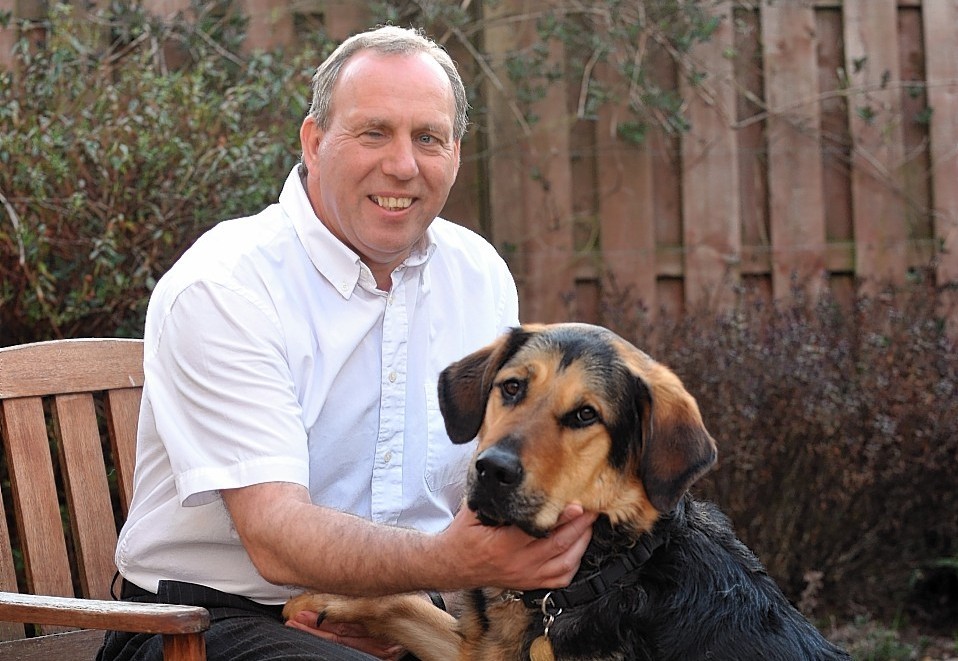A north-east MSP has urged the medical profession to do more to help diabetics who have eating disorders.
Dennis Robertson said people with the Type 1 version of the disease were five times more likely to die than someone who sufferers from anorexia nervosa.
Diabulimia – a permutation of diabetes and bulimia – is the name given to an eating disorder suffered by people who deliberately give themselves less insulin than they need to try and lose weight.
The condition is not currently recognised as a formal diagnosis by the medical or psychiatric communities.
Speaking at Holyrood yesterday, Mr Robertson said: “It would appear that those with diabetes and eating disorders still do not have recognised diagnosis – there is no medical name attached to this as far as I am aware.
“But hopefully by raising awareness perhaps we will make some strides forward.”
Mr Robertson’s 18-year-old daughter Caroline, died four years ago today (wed) after a five-year battle with anorexia.
Reflecting on her death, Mr Robertson, SNP MSP for Aberdeenshire West, said: “It happened because it happened – it is simple as that.
“It is not because there was not intervention, it is because there was perhaps the wrong intervention.
“It happened because maybe we were ill informed as parents, as Caroline’s main carers.
“This is too often the problem – communication between the clinicians and parents/carers is still not at a level that we can have confidence that those with eating disorders get the care and treatment that they need.”
Official figures show that around 2,000 patients seek treatment for a eating disorder in Scotland every year but the true number of sufferers could be much higher because many people do not ask for help.
Mr Robertson said that NHS Grampian had received some bad press recently but pointed out that it provided an “exemplary” service for people with eating disorders in Aberdeen.
Mr Robertson said other health boards would do well to replicate the care and support provided.
“Young people who are going to medical services are not being appropriately cared for,” he added.
“They are not getting the appropriate treatment when they go to hospital. Why? – the people who give that treatment are not aware of the full implications of the eating disorder.”
North-east Conservative MSP Nanette Milne said she thought it was
“extremely brave” of former Deputy Prime Minister John Prescott to announce that he had suffered from bulimia for more than 10 years.
“It must have taken a great deal of courage for a bluff bruiser like him to come forward to help to end the stigma of eating disorders and I admire him for it,” she added.
“I want to say to the millions of people, do take advice, it can help and it can help you out of a lot of misery that you suffer in silence.”
Highland Labour MSP Rhoda Grant said more dedicated mental health services for young people with eating disorders were needed.
“We need to understand the conditions and to provide early intervention to help sufferers,” she added.
“It is sad that young people tend to have to leave home and loved ones, and to travel very great distances to access high-quality care.”
Ms Grant said society must deal with the pressure to attain unrealistically thin bodies.
“Digitally altering images of extremely thin models in the first place to make them even taller and thinner portrays body shapes that are impossible to attain,” she added.
“Such bodies are then portrayed as perfection and something to which we should all aspire.
“We need to stop that and be realistic about what is normal.”
Aberdeen Donside SNP MSP Mark McDonald said guidance issued on eating disorders in 2006 must be reviewed to ensure there was a correct understanding of diabulimia.
Minister for Mental Health Jamie Hepburn said the government funded a psychology and diabetes pilot project which has now concluded.
“We expect the lessons that have been learned from it to be shared appropriately among health boards,” he added.
“Work is on-going to consider how best to disseminate the learning outcomes from the pilot and, if it is appropriate to update our guidance accordingly, we will seek to do so.”
